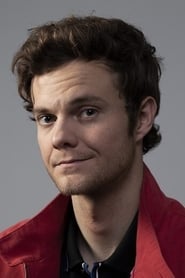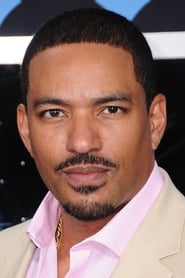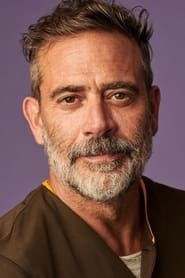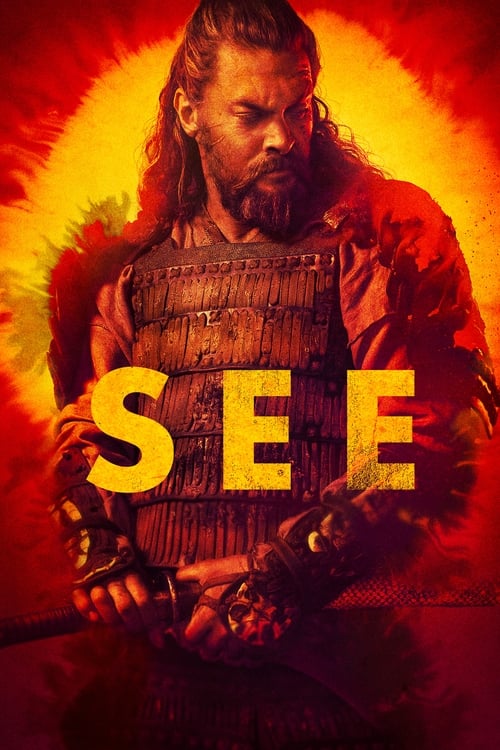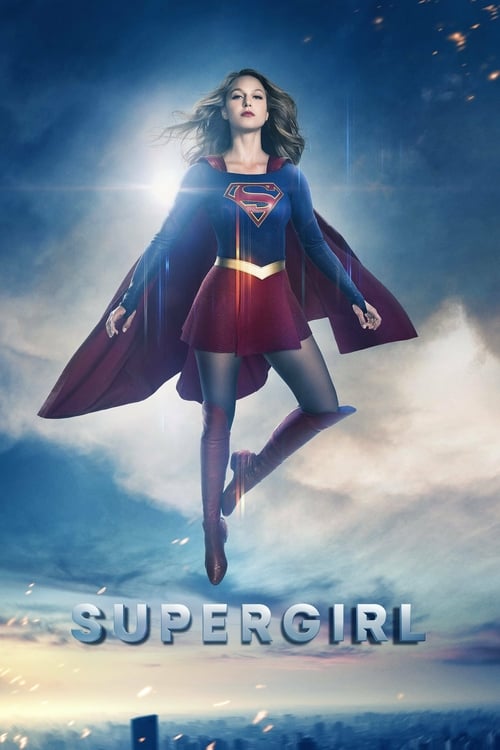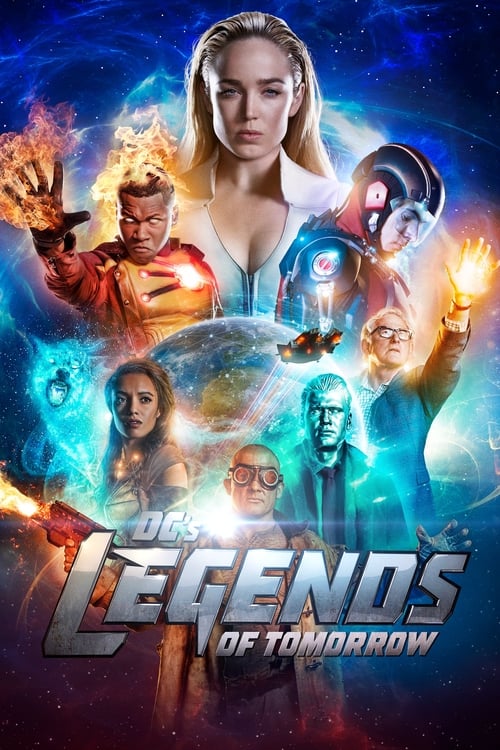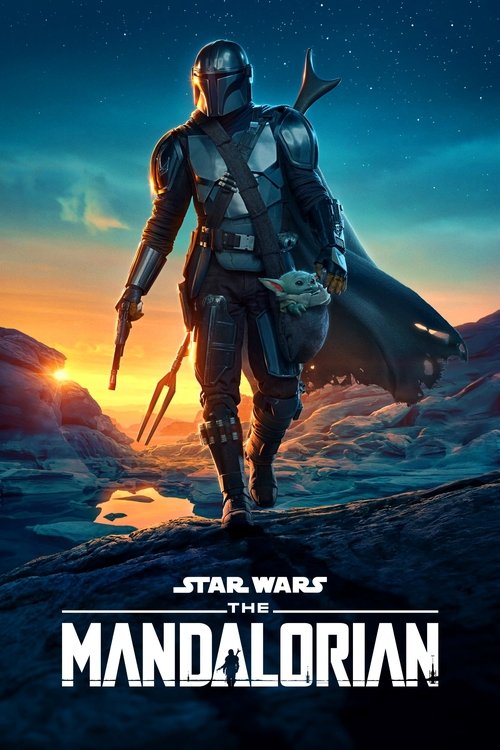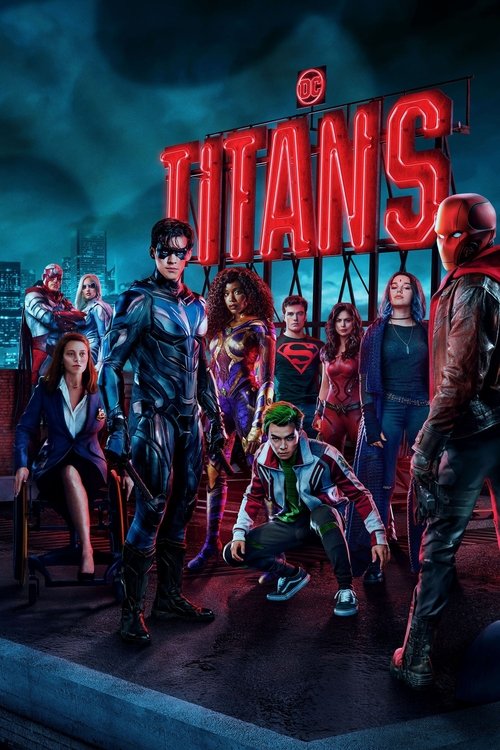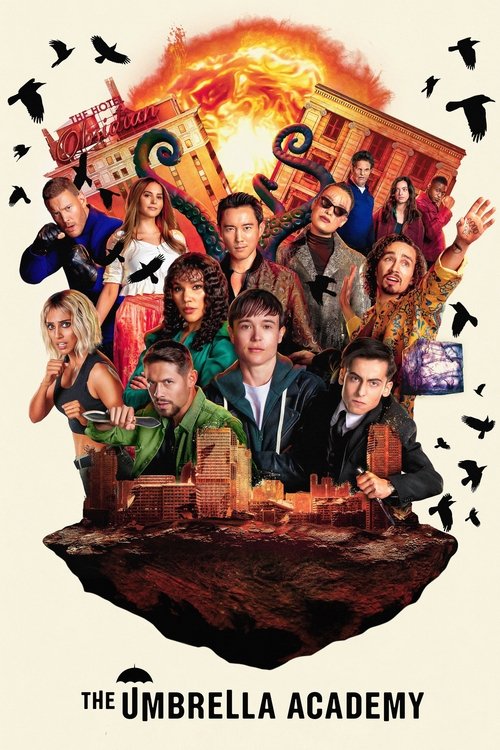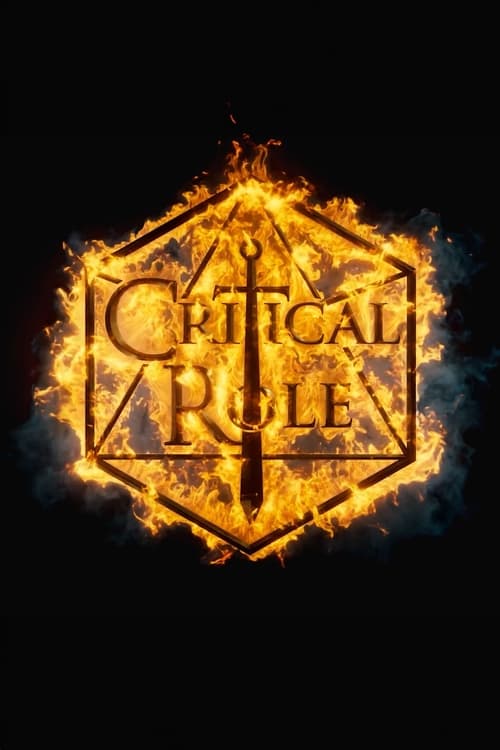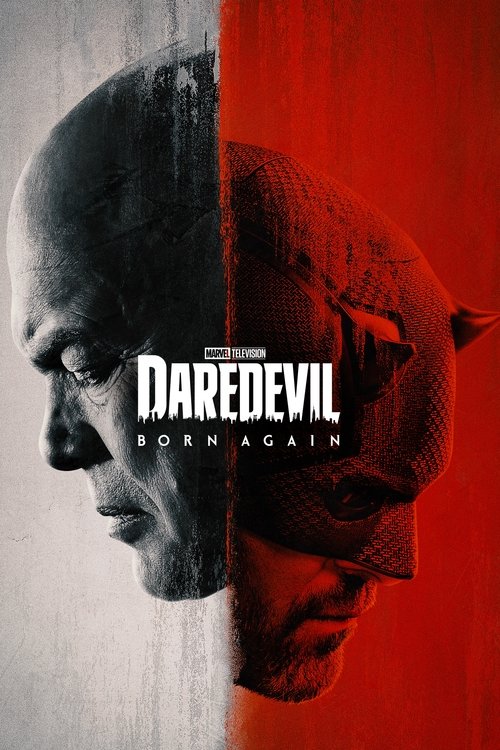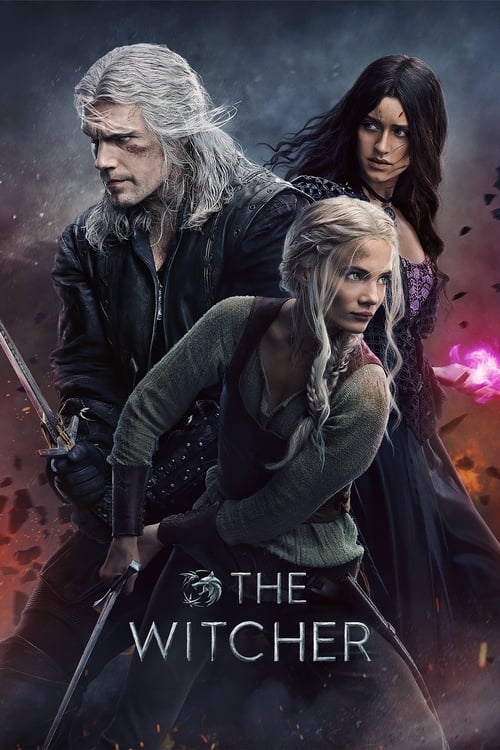
Ask Your Own Question
What is the plot?
The episode begins with a flashy introduction to the Vought News Network, showcasing the charismatic host Cameron Coleman. He presents the show "Seven on 7," which is designed to keep the public informed about the superhero team known as The Seven. The set is vibrant, filled with screens displaying images of the superheroes, and Coleman exudes confidence as he engages the audience.
Cameron introduces the first segment, focusing on the recent events surrounding The Seven. He highlights the team's latest missions and their public image, emphasizing their role as protectors of society. The tone is upbeat, with a mix of humor and seriousness, as Coleman discusses the importance of the superheroes in maintaining order and safety.
The show transitions to a segment featuring a pre-recorded interview with Homelander, the leader of The Seven. Homelander appears on screen, his demeanor charming yet unsettling. He discusses his views on heroism and the expectations placed upon him. As he speaks, there are subtle hints of his darker nature, particularly when he brushes off concerns about the collateral damage caused by his actions. The audience can sense the tension beneath his polished exterior.
Next, the episode shifts to a discussion about Queen Maeve, another member of The Seven. Coleman highlights her recent heroic acts, but there is an underlying current of concern regarding her mental state. The segment includes clips of Maeve in action, showcasing her strength and bravery, but also moments that reveal her struggles with the pressures of being a superhero. Coleman expresses admiration for her resilience while subtly questioning her future with the team.
The focus then turns to A-Train, who has been in the news for his controversial actions. Coleman addresses the backlash A-Train has faced, including public outcry over his reckless behavior. A-Train appears on screen, attempting to defend his actions and maintain his image. The tension is palpable as he struggles to balance his desire for fame with the consequences of his choices. The segment ends with a cliffhanger, leaving viewers wondering about A-Train's future with The Seven.
The episode continues with a segment dedicated to Starlight, who has been vocal about her experiences within The Seven. Coleman presents clips of Starlight discussing her journey, highlighting her struggles with the team's toxic culture. The audience can see her determination to make a difference, but also the toll it takes on her. Coleman praises her bravery while hinting at the challenges she faces in a male-dominated environment.
As the show progresses, Coleman introduces a lighthearted segment featuring the team's latest merchandise. The camera cuts to various products, including action figures and apparel, showcasing the commercialization of The Seven. The tone is playful, but there is an underlying commentary on the commodification of heroism. Coleman engages with the audience, encouraging them to embrace the superhero lifestyle.
The episode takes a darker turn as Coleman addresses the recent controversies surrounding Vought International. He discusses the company's questionable practices and the public's growing distrust. The atmosphere shifts as Coleman attempts to reassure viewers, but there is a palpable sense of unease. The segment includes clips of protests and public outcry, highlighting the tension between Vought and the citizens they claim to protect.
In the final segment, Coleman invites a special guest, a representative from Vought, to discuss the company's future. The representative attempts to downplay the controversies, presenting a polished image of Vought as a benevolent force. However, the conversation quickly becomes heated as Coleman presses for transparency. The tension escalates, revealing the cracks in Vought's facade and the internal struggles within the organization.
The episode concludes with Coleman summarizing the key points discussed throughout the show. He emphasizes the importance of accountability and the need for The Seven to evolve in response to public scrutiny. The screen fades to black, leaving viewers with a sense of uncertainty about the future of both The Seven and Vought International.
What is the ending?
In the ending of "Vought News Network: Seven on 7 with Cameron Coleman (December 2021)," the episode concludes with a series of updates and interviews that highlight the ongoing narratives surrounding the Seven and Vought International. The episode features various segments that showcase the public relations efforts of Vought, including the promotion of the Seven and their activities. The characters remain entrenched in their roles, with the overarching themes of manipulation and public perception remaining central to the narrative.
As the episode unfolds, Cameron Coleman, the charismatic host, guides the audience through a series of segments that include interviews with members of the Seven, updates on their latest missions, and discussions about the public's perception of superheroes. The tone is upbeat and polished, reflecting Vought's efforts to maintain a positive image despite the underlying tensions and controversies surrounding the Seven.
The episode ends with a focus on the Seven's latest exploits, showcasing their heroism while subtly hinting at the darker realities of their actions. The characters, including Homelander, Queen Maeve, and others, continue to navigate their complex relationships and the pressures of being public figures in a world that is increasingly skeptical of their motives.
In a more detailed narrative:
The episode opens with Cameron Coleman, dressed sharply in a suit, sitting confidently at the Vought News Network desk. His demeanor is polished, exuding charisma as he welcomes viewers to the latest edition of "Seven on 7." The camera zooms in on him, capturing the glint of excitement in his eyes as he introduces the show, emphasizing the importance of the Seven in American society.
The first segment features an interview with Homelander, who sits in a well-lit studio, his expression a mix of charm and menace. He discusses his recent heroic deeds, the camera capturing his every word with a flattering angle. As he speaks, the audience can sense the underlying tension in his voice, a hint of desperation to maintain his image as the ultimate hero. The editing intersperses clips of his past heroics, showcasing his strength and bravery, while the audience is left to ponder the darker implications of his character.
Next, the show shifts to Queen Maeve, who appears more reserved and contemplative. She discusses the challenges of being a member of the Seven, her words laced with a sense of weariness. The camera captures her subtle expressions, revealing her internal conflict as she grapples with the morality of her actions and the expectations placed upon her by Vought and the public.
As the episode progresses, the focus shifts to the other members of the Seven, each segment designed to reinforce their heroic personas. A montage of their latest missions plays, filled with action-packed sequences that highlight their powers and teamwork. However, beneath the surface, the audience can sense the fractures within the group, the tension simmering just below the polished exterior.
The final segment of the episode features a roundtable discussion with Cameron and the Seven, where they address recent controversies and public skepticism. The atmosphere is tense, with each member trying to assert their position while maintaining a facade of unity. The camera captures the subtle glances and body language, revealing the underlying discord among them.
As the episode draws to a close, Cameron wraps up the show with a call to action for the viewers, encouraging them to support the Seven and trust in their heroism. The screen fades to black, leaving the audience with a lingering sense of unease about the true nature of the heroes they idolize.
In terms of character fates, Homelander remains a powerful yet increasingly unstable figure, driven by his need for adoration and control. Queen Maeve continues to struggle with her identity and the moral implications of her role within the Seven. The other members of the Seven, while maintaining their public personas, are left to navigate the complexities of their relationships and the expectations of Vought, setting the stage for future conflicts and developments in their stories.
Is there a post-credit scene?
In the episode "Vought News Network: Seven on 7 with Cameron Coleman (December 2021)" from the series The Boys, there is indeed a post-credit scene.
The scene features a light-hearted yet darkly comedic moment that showcases the absurdity of the world within The Boys. It opens with a cheerful jingle and a bright, colorful set, reminiscent of a typical daytime talk show. Cameron Coleman, the charismatic host, introduces a new segment that highlights the latest Vought product: a line of superhero-themed merchandise aimed at children.
As the camera pans across the set, we see various toys and apparel emblazoned with the logos of the Seven, including action figures and costumes. Coleman enthusiastically promotes the products, emphasizing their safety and fun, while subtly hinting at the underlying dangers of the superheroes themselves. His smile is wide, but there's a glint of irony in his eyes, reflecting the dissonance between the cheerful presentation and the dark reality of the superheroes' actions.
The scene shifts to a brief montage of children playing with the toys, interspersed with clips of the Seven in action, showcasing their powers and the chaos that often ensues. The juxtaposition serves to highlight the commercialization of heroism and the way Vought manipulates public perception.
As the segment wraps up, Coleman delivers a final, overly enthusiastic tagline, encouraging viewers to "join the fun and be a hero!" The screen fades to black, leaving the audience with a lingering sense of unease about the true nature of the heroes they idolize. This post-credit scene encapsulates the show's satirical take on celebrity culture and the commodification of heroism, reinforcing the themes that run throughout The Boys.
What new information about the Seven is revealed during the episode?
In this episode of Vought News Network, Cameron Coleman provides updates on the Seven, including their recent activities and public appearances. The episode highlights the team's efforts to maintain a positive public image amidst ongoing controversies.
How does Homelander's character continue to evolve in this episode?
Homelander's character is portrayed as increasingly unstable and desperate for public approval. His interactions during the news segment reveal his need for validation and control, showcasing his internal conflict and growing paranoia.
What role does Queen Maeve play in the episode?
Queen Maeve is featured prominently as a voice of reason within the Seven. Her character grapples with the moral implications of the team's actions and expresses concern over the direction in which the group is heading, highlighting her internal struggle with loyalty and ethics.
How does the episode address the public's perception of the Supes?
The episode uses various segments to illustrate the contrasting public perceptions of the Supes, particularly focusing on the Seven. It showcases both the adoration and skepticism from the public, emphasizing the media's role in shaping these views.
What comedic elements are present in the episode, and how do they affect the tone?
The episode incorporates satirical humor through exaggerated news segments and absurd promotional content for the Seven. This comedic approach serves to critique the media's portrayal of superheroes while also providing levity amidst the darker themes of the series.
Is this family friendly?
The episode "Vought News Network: Seven on 7 with Cameron Coleman (December 2021)" from "The Boys" is not family-friendly and contains several potentially objectionable or upsetting aspects.
-
Violence and Gore: The show often features graphic depictions of violence, which may be distressing for children or sensitive viewers.
-
Strong Language: There is frequent use of profanity throughout the episode, which may not be suitable for younger audiences.
-
Mature Themes: The episode addresses complex and dark themes, including corruption, power dynamics, and the exploitation of individuals, which may be difficult for children to understand.
-
Sexual Content: There are references to sexual situations and innuendos that may be inappropriate for younger viewers.
-
Dark Humor: The use of dark humor can be unsettling and may not resonate well with all audiences, particularly those who are sensitive to such content.
Overall, the tone and content of the episode are geared towards an adult audience, making it unsuitable for children.



